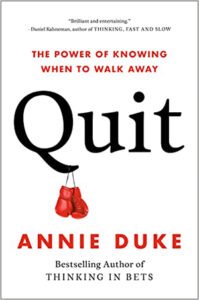|
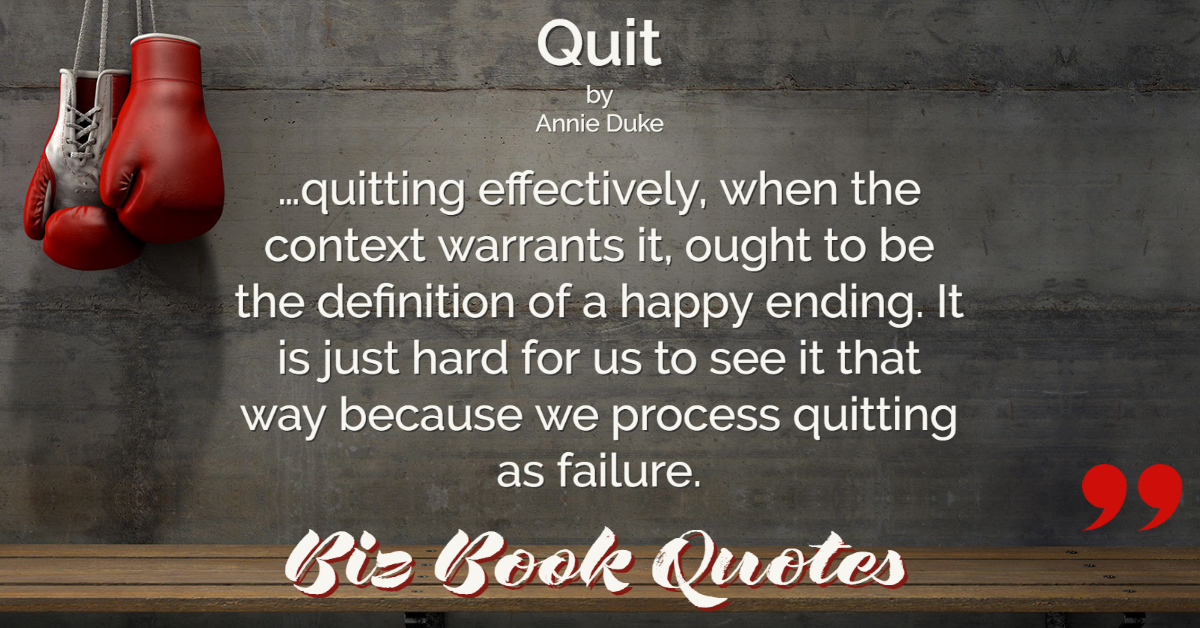
|
Quit:
…quitting effectively, when the context warrants it, ought to be the definition of a happy ending. It is just hard for us to see it that way because we process quitting as failure.
|
27 |
|
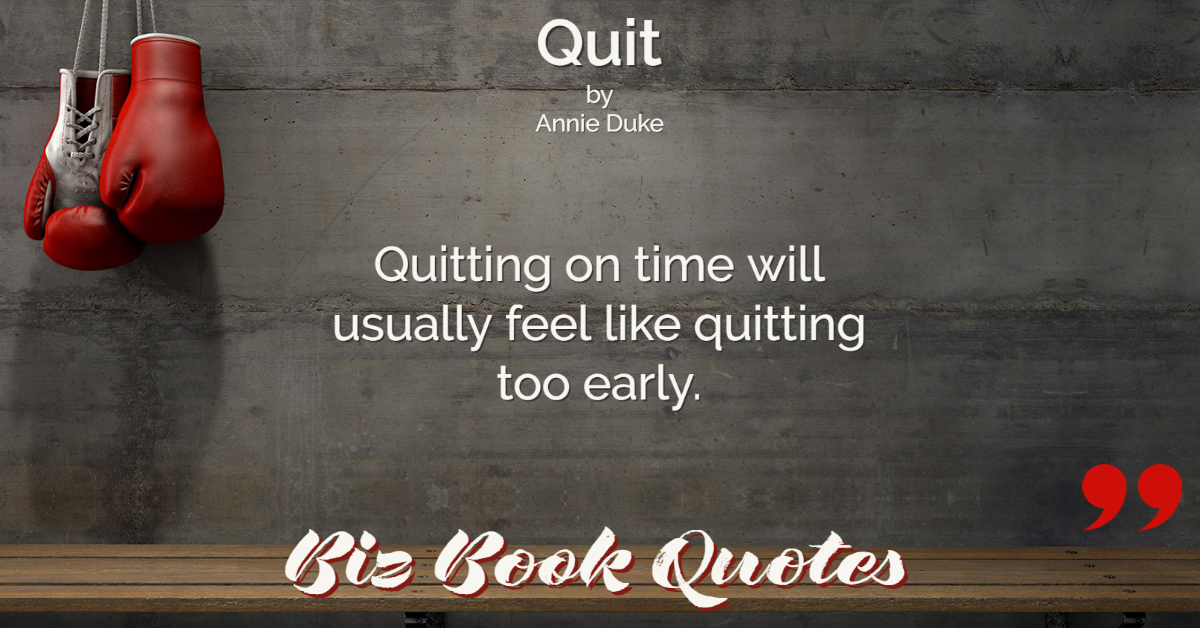
|
Quit:
Quitting on time will usually feel like quitting too early.
|
29 |
|
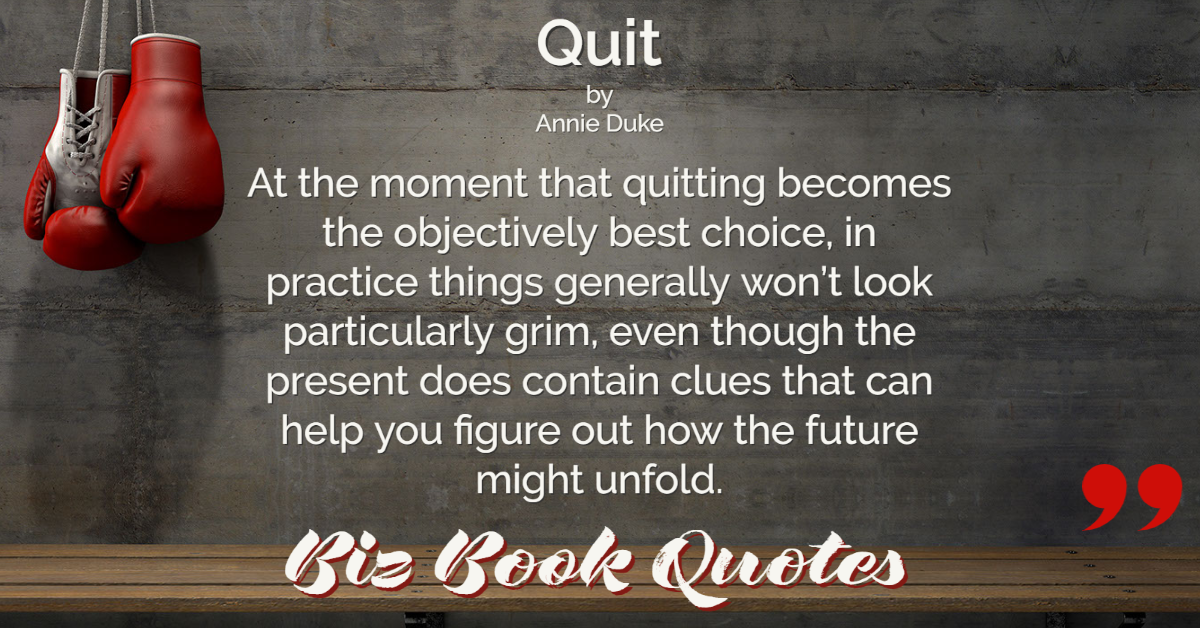
|
Quit:
At the moment that quitting becomes the objectively best choice, in practice things generally won’t look particularly grim, even though the present does contain clues that can help you figure out how the future might unfold.
|
29 |
|
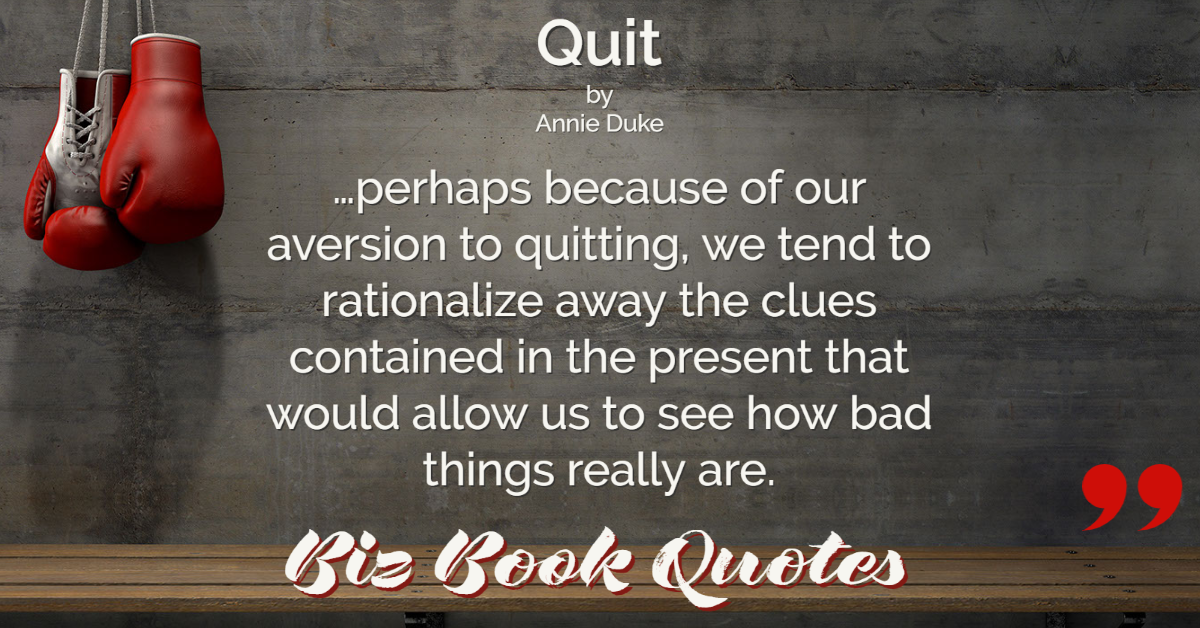
|
Quit:
…perhaps because of our aversion to quitting, we tend to rationalize away the clues contained in the present that would allow us to see how bad things really are.
|
29 |
|
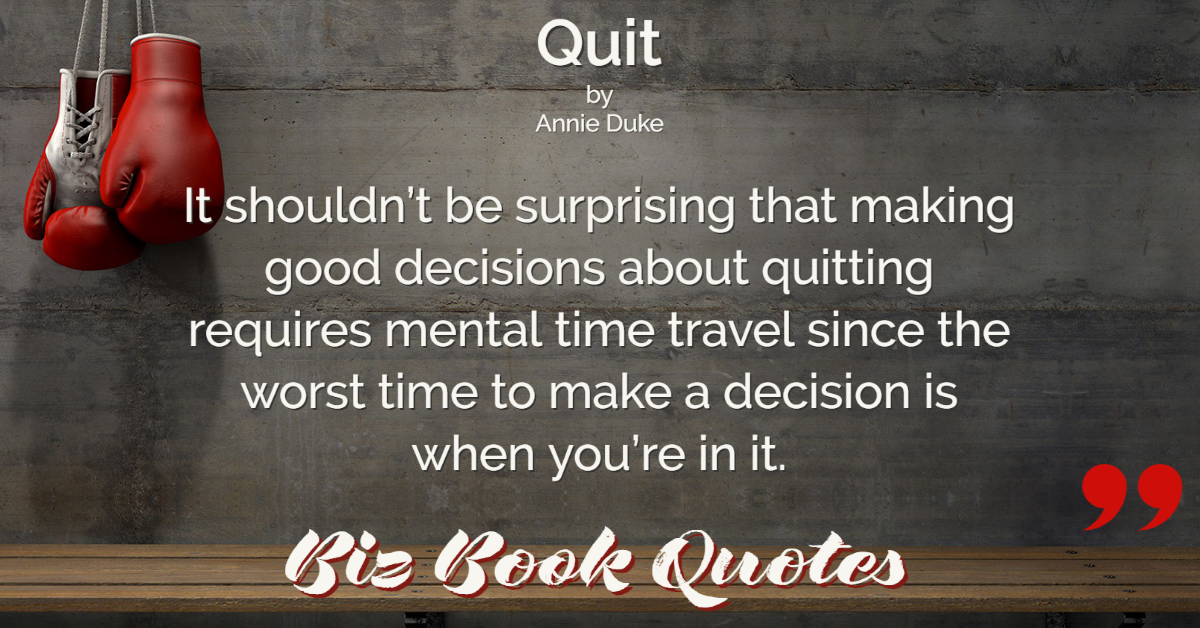
|
Quit:
It shouldn’t be surprising that making good decisions about quitting requires mental time travel since the worst time to make a decision is when you’re in it.
|
30 |
|
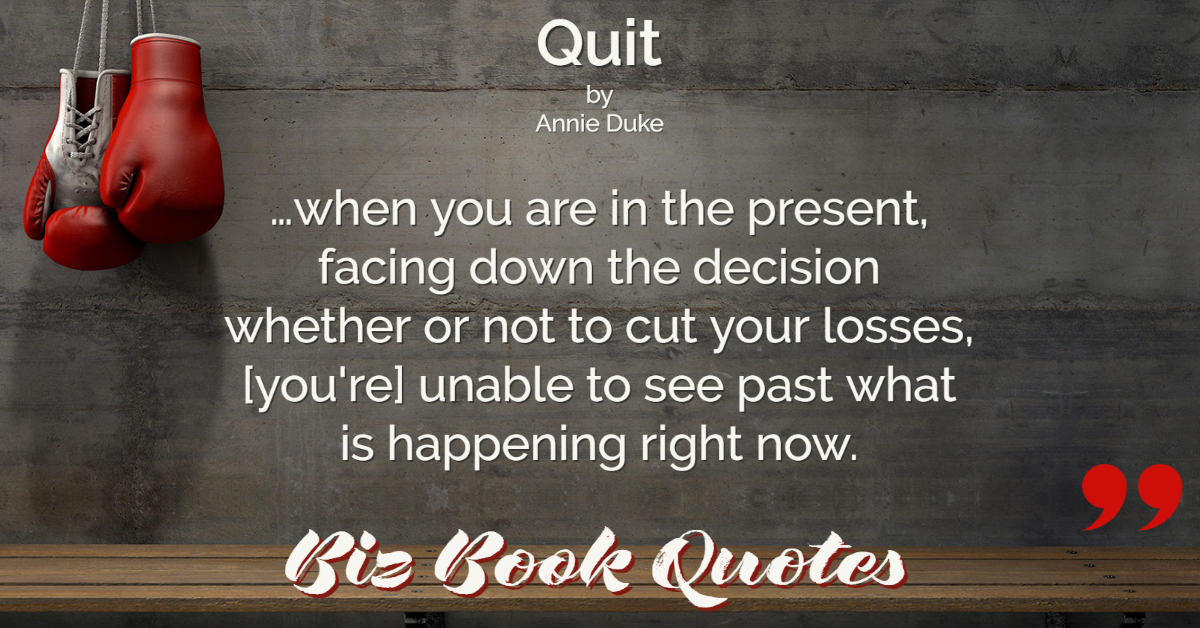
|
Quit:
…when you are in the present, facing down the decision whether or not to cut your losses, [you’re] unable to see past what is happening right now.
|
30 |
|

|
Quit:
There’s a well-known heuristic in management consulting that the right time to fire someone is the first time it crosses your mind.
|
30 |
|
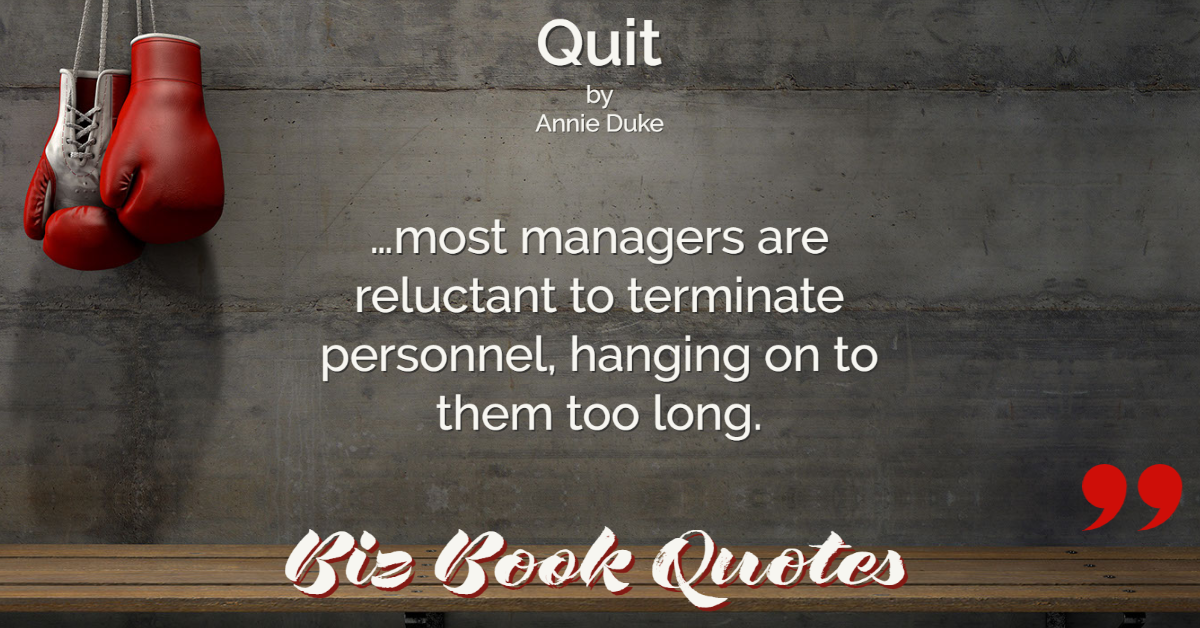
|
Quit:
…most managers are reluctant to terminate personnel, hanging on to them too long.
|
30 |
|
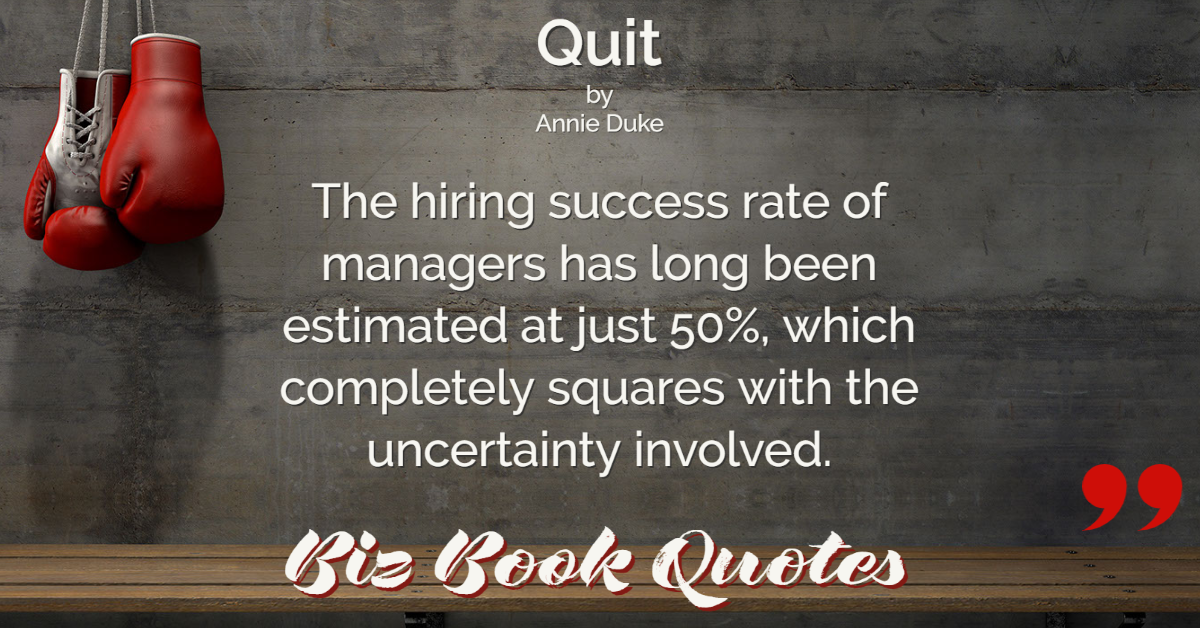
|
Quit:
The hiring success rate of managers has long been estimated at just 50%, which completely squares with the uncertainty involved.
|
31 |
|
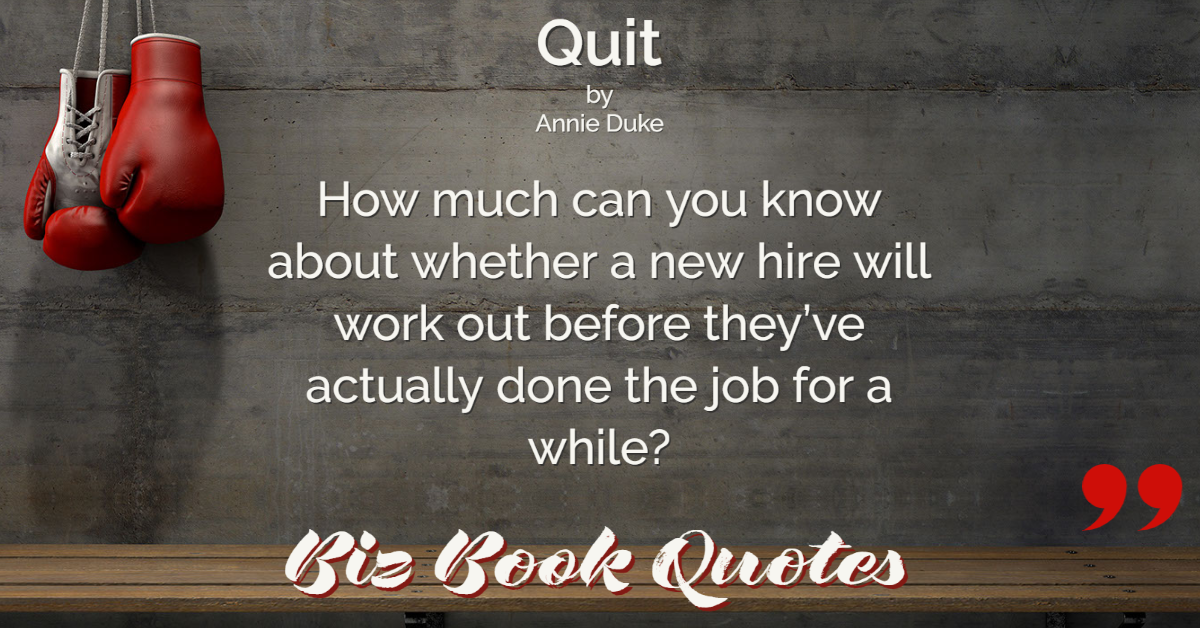
|
Quit:
How much can you know about whether a new hire will work out before they’ve actually done the job for a while?
|
31 |
